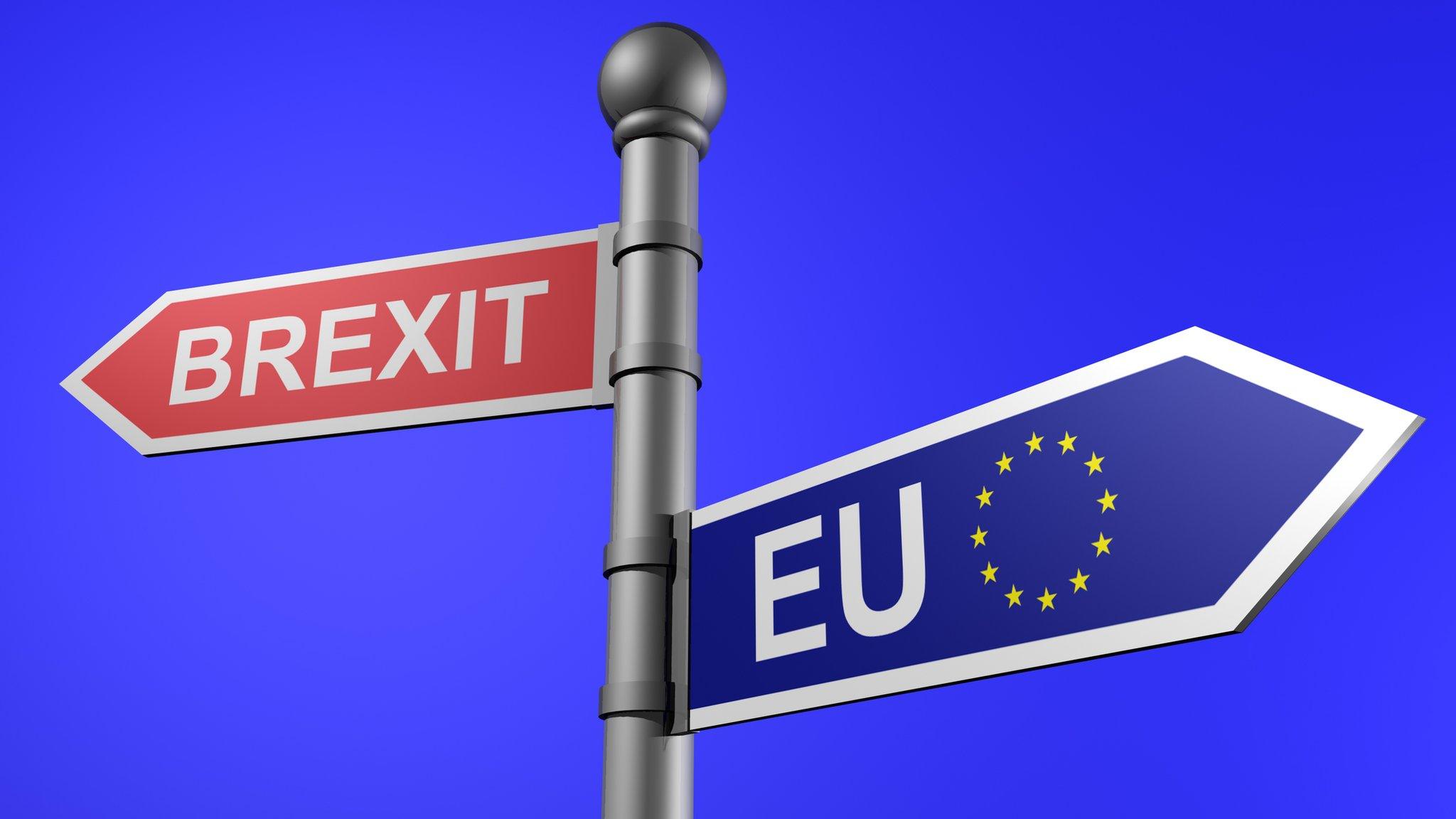UK 'needs more bureaucrats for Brexit', says ex-diplomat
- Published
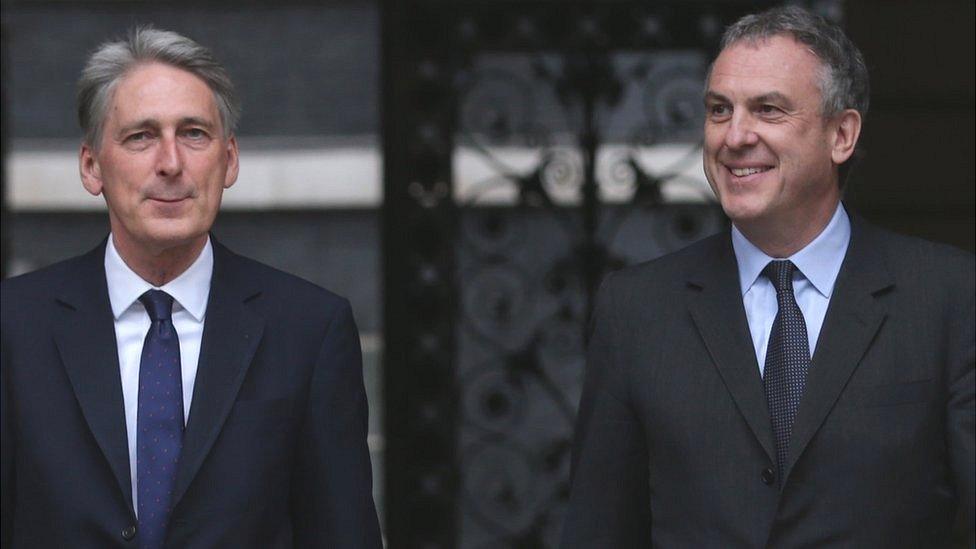
Sir Simon Fraser (R) worked alongside Philip Hammond (L) at the Foreign Office
The UK government will have to hire extra civil servants to cope with the "phenomenally large task" of negotiating Brexit, a former top Foreign Office diplomat has said.
Sir Simon Fraser was a trade negotiator in Europe and permanent under-secretary at the Foreign Office until July 2015.
"I don't think we can avoid an increase in bureaucracy," he said, stressing a need for expertise in trade talks.
"Serious thinking has barely begun on the substantive issues," he said.
Mr Fraser told reporters in London that he expected Prime Minister Theresa May, Chancellor Philip Hammond and the new Brexit Minister, David Davis, to be the key players in negotiating the UK's exit from the EU.
Besides Mr Davis, Mrs May gave top posts to two other leading figures in the Leave campaign: Boris Johnson became Foreign Secretary and Liam Fox International Trade Secretary.
Mrs May has promised to deliver Brexit because the Leave camp won with 52% of the vote on 23 June.
But she will not trigger Article 50 , external- the formal mechanism for starting Brexit - until next year.
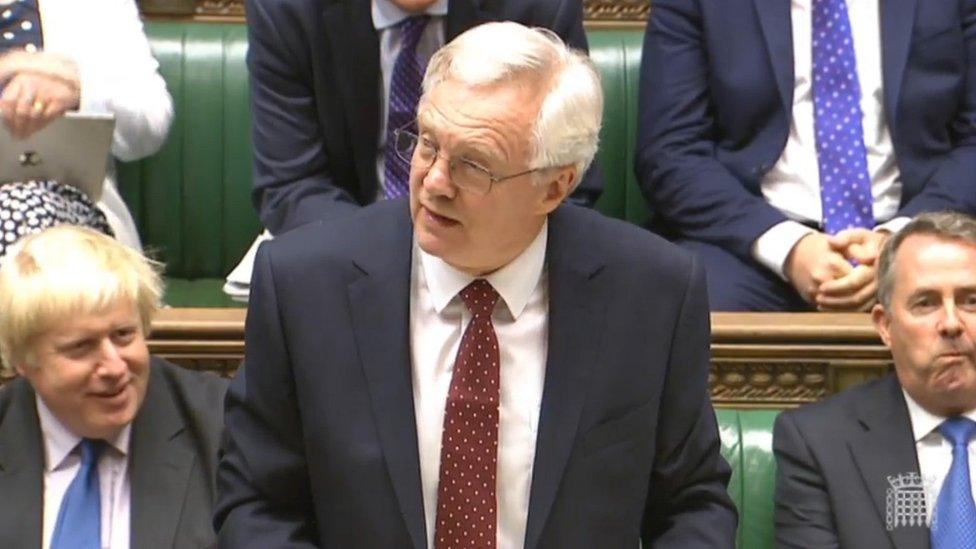
The three top "Brexiteers" in the cabinet: (from left) Boris Johnson, David Davis and Liam Fox
After the UK's 1973 accession to the EU - then called the European Economic Community (EEC) - the UK drastically reduced its capacity for negotiating trade deals, because Brussels bureaucrats negotiate deals for the whole EU.
"We have the smallest civil service since World War Two," Mr Fraser said, yet the challenge of unpicking the UK's ties to the EU would be "phenomenally complex".
Recruitment worries
Article 50 sets a two-year time-frame for leaving the EU, though it can be extended if the other member states agree to that.
Mr Fraser said the separate negotiation of the UK's future relationship with the EU was likely to last much longer.
Under EU rules, a member state cannot independently negotiate trade deals until it leaves the EU.
But Mr Fraser said "that doesn't mean the UK can't have preliminary discussions" about such deals, for example with Australia, India or the US.
Among the many uncertainties surrounding Brexit, Mr Fraser said, "one of the biggest concerns in the private sector is a loss of access to talent, in a knowledge economy".
Many analysts believe that UK withdrawal from the EU single market and tighter British immigration controls would make it harder to recruit specialists from EU countries, for example for the National Health Service and scientific research.
Mr Fraser said a Norway-style relationship with the EU - much-discussed in connection with Brexit - would be "inconsistent with the sovereignty argument" of the Brexit camp.
Norway enjoys the benefits of the EU single market, but pays a high price for it - paying into the EU budget and accepting most EU laws without having any vote on them.
- Published8 September 2022
- Published5 September 2016
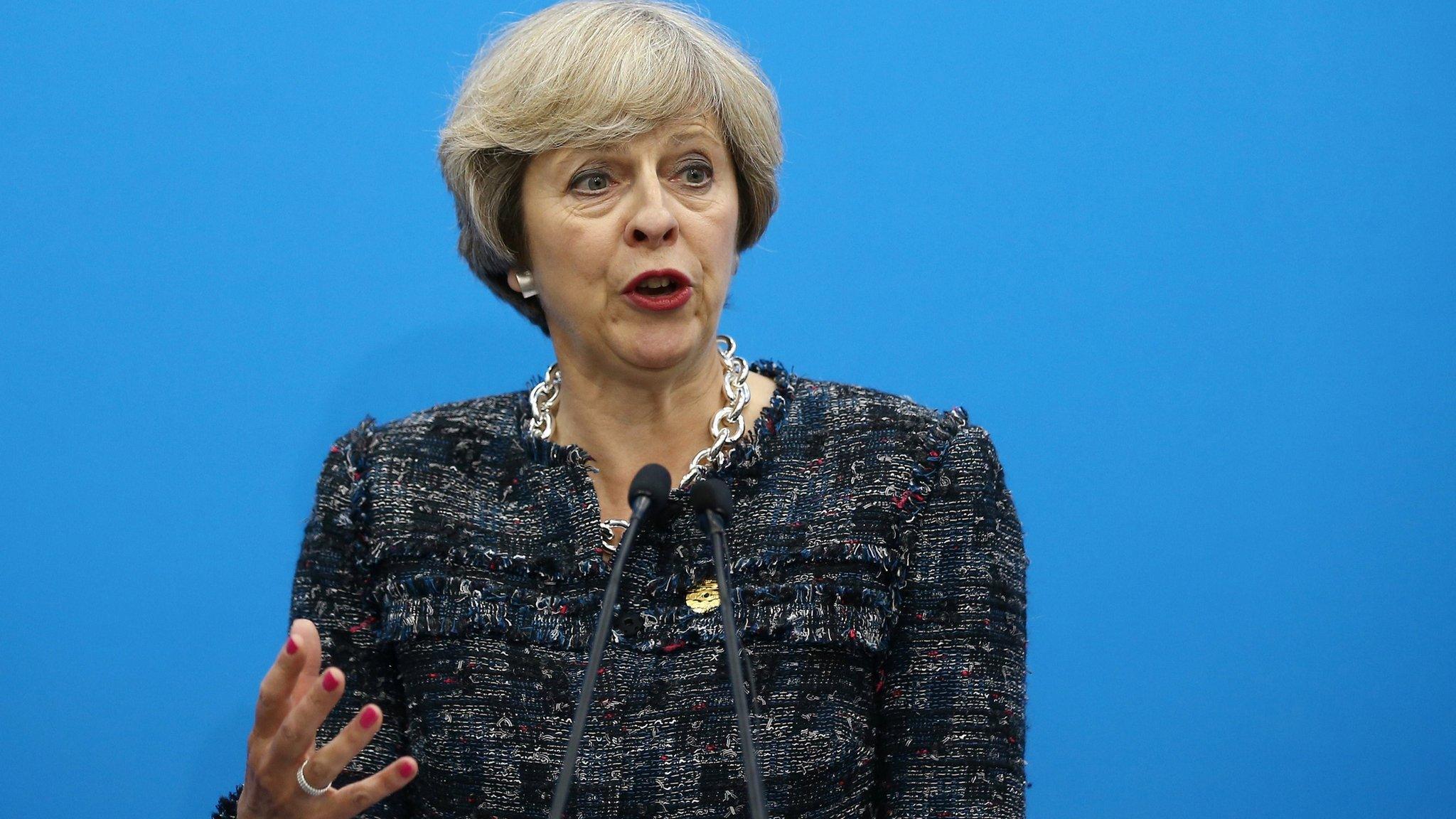
- Published30 December 2020

- Published28 March 2017
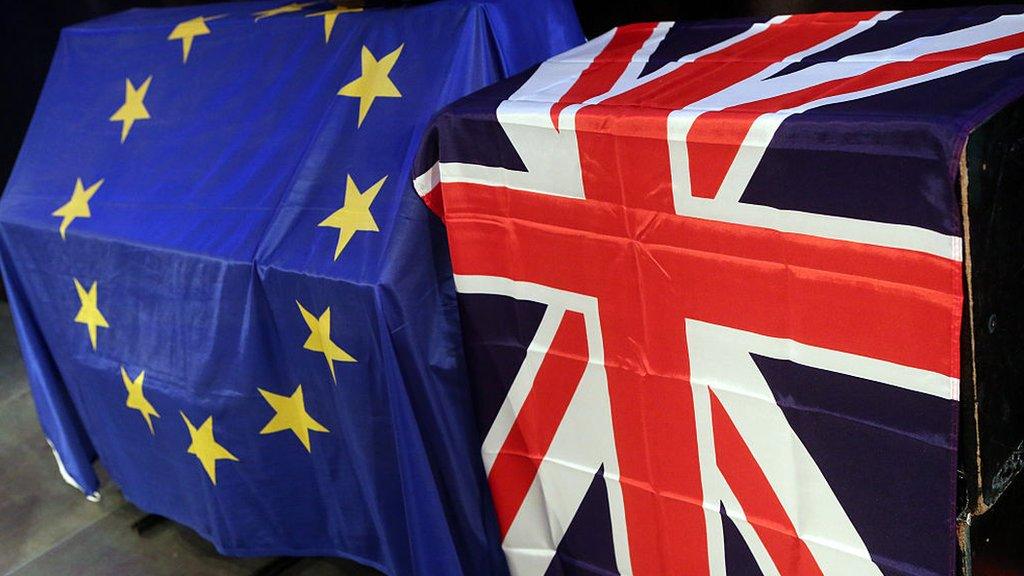
- Published27 June 2016
